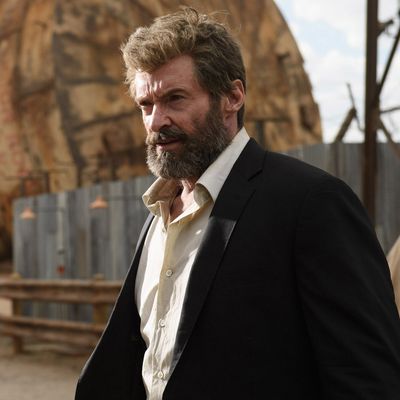
Great screenplays are often defined by how much they can do with short, unflashy beats of dialogue. But that fact is typically lost on most superhero screenwriters, who tend to steer their scripts toward meandering monologues about heroism, implausible one-liners, and bombastic arguments about how to avert impending apocalypses. Not so with Logan. The tenth film in the X-Men franchise was filled with economical moments of great impact: urgent pleas for help, terse exchanges between good guys and bad ones, and moments of familiarity between old friends. (I giggle whenever I think about the bit where Logan gives Charles Xavier his pills and quips, “How about you blow on them to make them safe?” and Charles merely replies, “Fuck off, Logan.”)
That verbal efficiency is one of many reasons Logan is so deserving of its Academy Award nomination for best adapted screenplay. And in receiving it, co-writers James Mangold (also the film’s director), Michael Green, and Scott Frank weren’t just validated as having crafted something remarkable. They also broke a barrier for genre fiction: Logan became the first superhero-comic adaptation to get an Oscar nod for its story. That’s no small thing.
To be clear, Logan isn’t the first superhero movie to get any Oscar nomination. More than a dozen have been given that honor, but they’re virtually all in visual effects, cinematography, and sound categories. Heath Ledger won posthumously for The Dark Knight.* There’s even a precedent in the screenplay categories: Brad Bird’s script for The Incredibles got a nomination for best original screenplay in 2005.
But this moment is different. It’s the first time a superhero tale that began in comic books has gotten this far. Logan isn’t an adaptation of one single comic, although it owes a great debt to Mark Millar and Steve McNiven’s groundbreaking 2008–09 “Old Man Logan” story arc in Marvel’s Wolverine series. Nevertheless, all the core characters started their lives in four-color adventures (with the quasi-exception of vicious little Laura, who debuted in an X-Men cartoon before porting over to the page). As such, this nomination is a kind of legitimization of the superhero-comic genre. It’s proof that there’s artistic gold in those pages, if you’re willing to mine it the right way.
It’s also notable that Logan is a Marvel Comics property, but not one produced by Disney-owned Marvel Studios. It came from Fox, the studio that owns the rights to the X-Men characters. When Marvel Studios began blowing audiences away with the Marvel Cinematic Universe in 2008, Fox struggled to outshine its rivals in the competition for Marvel Comics adaptations. That started to change over the past few years, during which time they’ve put out boundary-pushing superhero products of wildly different natures, from Deadpool to TV’s Legion and, of course, Logan.
Here’s why that matters: If all works out with Disney’s acquisition of 21st Century Fox and its associated superhero properties, there’s a strong chance those Fox characters will be assimilated into the lucrative Marvel Studios formula of zingers, pop-culture references, and easy pathos. That would be a shame, because Fox’s X-Men franchise has distinguished itself specifically by not aping that strategy. The brutal, bleak, and fiercely empathetic Logan couldn’t feel less like a Thor or Guardians of the Galaxy movie, and that’s one of its virtues. Here’s hoping Disney is aware of the way Logan’s uniqueness has been rewarded, and doesn’t try to water down the approach that its new children in the X-franchise have taken.
And make no mistake — this was a franchise movie. Though it was possibly lost on the uninitiated, Logan rewarded viewers who had previously consumed other X-Men pictures. That’s another way in which Logan’s nomination has pushed the genre forward: It demonstrates that connected-universe screenwriters can and should attempt to write truly great scripts, ones that don’t feel like they’re just telling a boilerplate super-story while setting up four sequels. We live in the era of a revitalized studio system, in which screenplays are treated like cogs in a machine. They’re tasked with picking up where the last movie left off, playing through all the familiar notes, and “ending” with the beginning of the next installment. They’re means to an end, and as such they take few chances.
Logan, on the other hand, felt risky. It was a franchise picture that leapt across a chasm into uncharted territory. Just because studios are managing a franchise doesn’t mean they have to play it safe. Let the writers swing for the fences and roll the dice on edgier source material. If the superhero boom is going to survive, it needs to elevate its game. Logan is proof that it can.
*This article has been updated to reflect that there has only been one best supporting actor nomination for a superhero movie.

